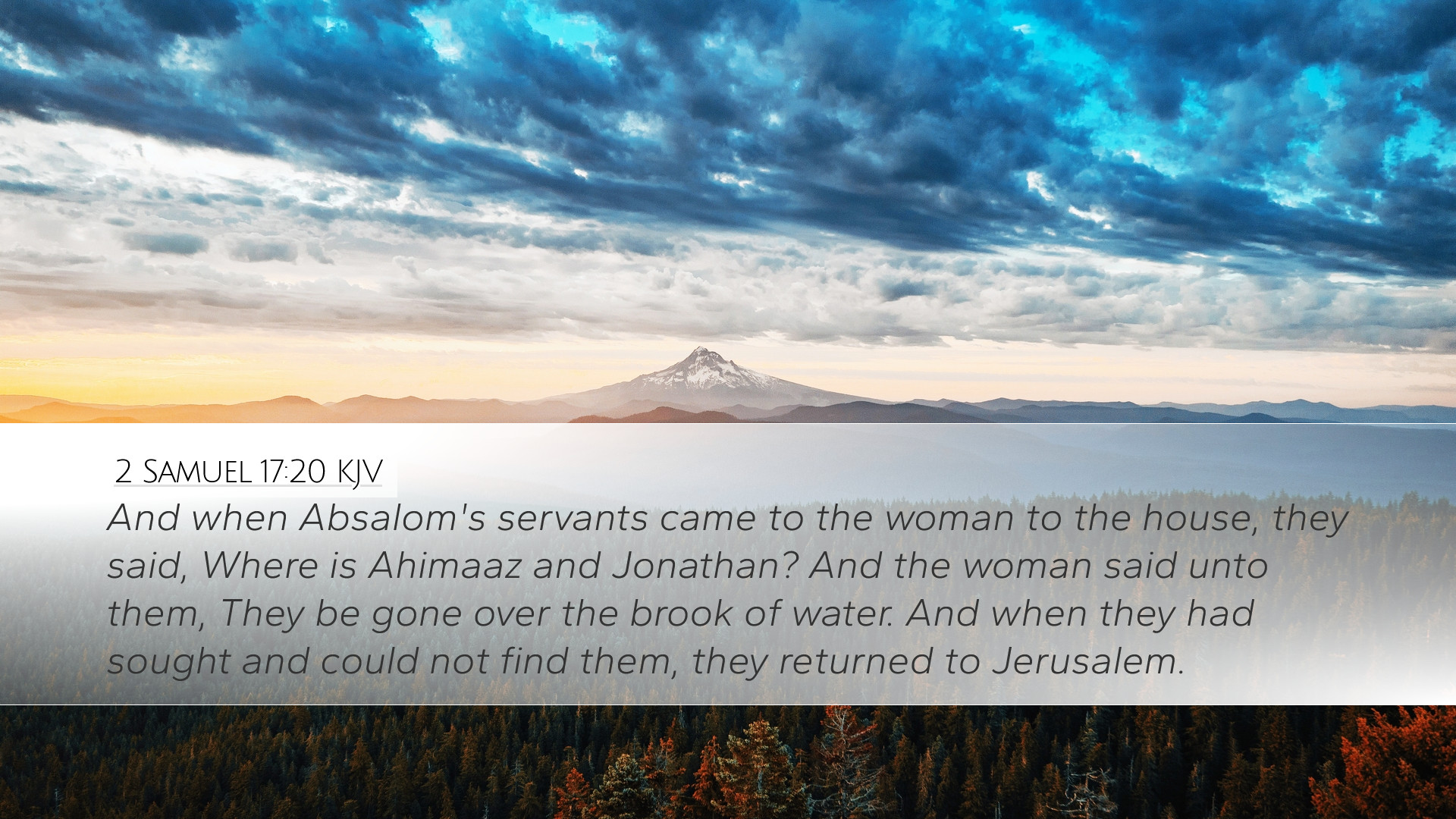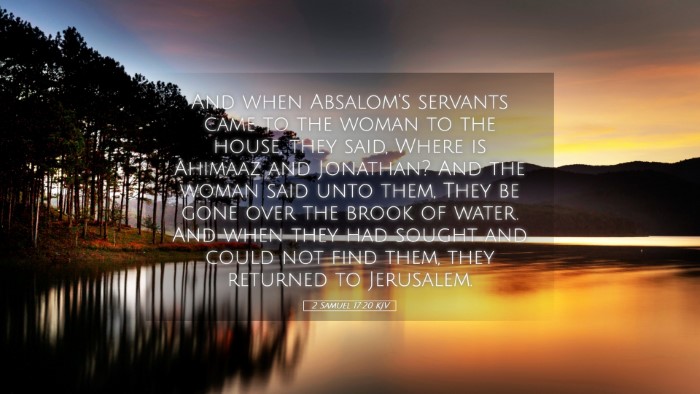Old Testament
Genesis Exodus Leviticus Numbers Deuteronomy Joshua Judges Ruth 1 Samuel 2 Samuel 1 Kings 2 Kings 1 Chronicles 2 Chronicles Ezra Nehemiah Esther Job Psalms Proverbs Ecclesiastes Song of Solomon Isaiah Jeremiah Lamentations Ezekiel Daniel Hosea Joel Amos Obadiah Jonah Micah Nahum Habakkuk Zephaniah Haggai Zechariah MalachiVerse
2 Samuel 17:1 2 Samuel 17:2 2 Samuel 17:3 2 Samuel 17:4 2 Samuel 17:5 2 Samuel 17:6 2 Samuel 17:7 2 Samuel 17:8 2 Samuel 17:9 2 Samuel 17:10 2 Samuel 17:11 2 Samuel 17:12 2 Samuel 17:13 2 Samuel 17:14 2 Samuel 17:15 2 Samuel 17:16 2 Samuel 17:17 2 Samuel 17:18 2 Samuel 17:19 2 Samuel 17:20 2 Samuel 17:21 2 Samuel 17:22 2 Samuel 17:23 2 Samuel 17:24 2 Samuel 17:25 2 Samuel 17:26 2 Samuel 17:27 2 Samuel 17:28 2 Samuel 17:29

